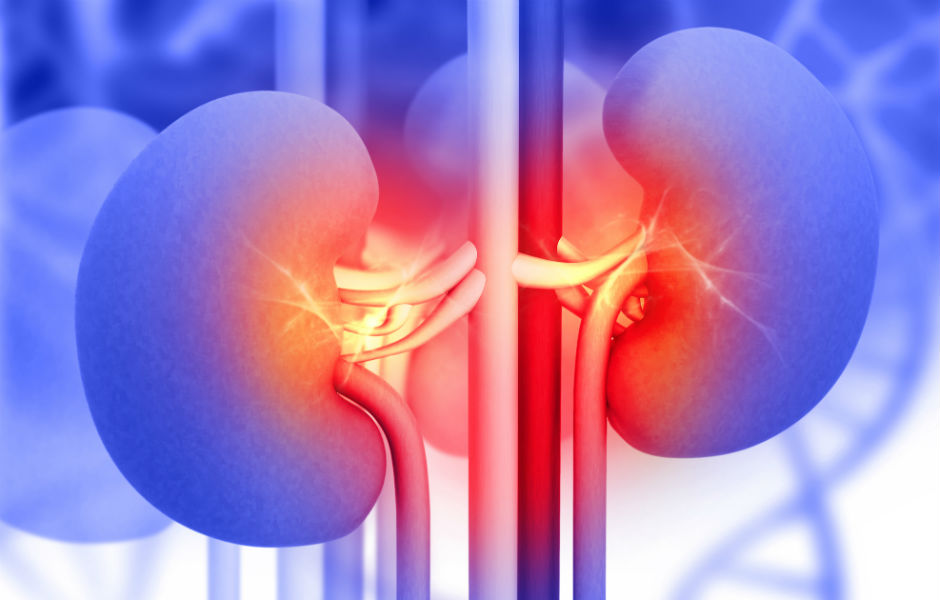Taking popular heartburn medication for extended periods has been linked to acute kidney injury, chronic kidney disease, and progression to end-stage renal disease.
Unfortunately, most patients do not experience acute kidney problems beforehand.

Heartburn Medication Warning
The sudden onset of kidney problems is often a red flag for doctors to discontinue their patients’ use of proton pump inhibitors (PPIs). PPIs are sold under the brand names Nexium, Protonix, Prilosec, and Prevacid, among others.
More than 15 million Americans suffering from heartburn, ulcers, and acid reflux have prescriptions for PPIs. This type of medication helps in bringing relief to the patient by reducing gastric acid. Many millions more people purchase the medication over-the-counter and take them without a prescription, or being under a doctor’s care.
However, a recent study evaluating the use of PPIs in 125,000 patients specifies that more than half of patients who develop chronic kidney damage while taking the drugs do not experience acute kidney problems beforehand.
According to researchers at Washington University School of Medicine in St. Louis and the Veterans Affairs St. Louis Health Care System, this means that patients may not be aware of a decline in kidney function. For that reason, doctors and people who take PPIs should be more cautious and observant in monitoring use of these medications.
Kidney Problems
The researchers of this new study — including first author Yan Xie, a biostatistician at the St. Louis VA — analyzed data from the Department of Veterans Affairs databases on 125,596 new users of PPIs and 18,436 new users of other heartburn drugs referred to as H2 blockers.
The researchers report that the H2 blockers are much less likely to cause kidney problems but often are not as effective.
For five years, the researcher followed up and found that more than 80 percent of the PPI users did not develop acute kidney problems, which often are reversible. The acute kidney problems are characterized by too little urine leaving the body, fatigue, and swelling in the ankles and legs.
However, the researchers note that more than half of the cases of chronic kidney damage and end-stage renal disease associated with PPI use occurred in people without any indication of acute kidney problems.
The study’s senior author and an assistant professor of medicine at Washington University School of Medicine, Ziyad Al-Aly, MD, offered the following comment pertaining to PPIs and acute kidney problems.
“The onset of acute kidney problems is not a reliable warning sign for clinicians to detect a decline in kidney function among patients taking proton pump inhibitors. Our results indicate kidney problems can develop silently and gradually over time, eroding kidney function and leading to long-term kidney damage or even renal failure. Patients should be cautioned to tell their doctors if they’re taking PPIs and only use the drugs when necessary.”
End-stage Renal Disease Risk
End-stage renal disease occurs when the kidneys can no longer effectively remove waste from the body. In such cases, dialysis or a kidney transplant is needed to keep patients alive.
Dr. Al-Aly, who also is the VA’s associate chief of staff for research and education and co-director of the VA’s Clinical Epidemiology Center, cautions doctors and patients of a significant risk in long-term use of PPIs.
“Doctors must pay careful attention to kidney function in their patients who use PPIs, even when there are no signs of problems. In general, we always advise clinicians to evaluate whether PPI use is medically necessary in the first place because the drugs carry significant risks, including a deterioration of kidney function.”
The study titled “Long-term kidney outcomes among users of proton pump inhibitors without intervening acute kidney injury” is published Feb. 22 in Kidney International.
Again, people taking popular heartburn medication containing proton pump inhibitors — or PPIs — should be more cautious and observant in monitoring the use of these drugs.